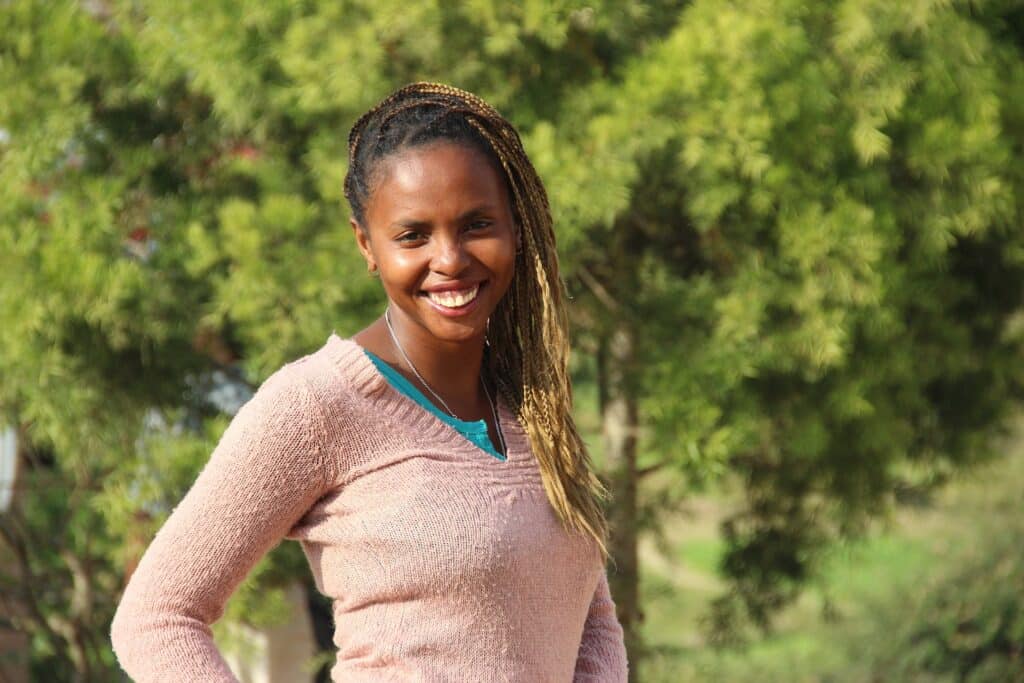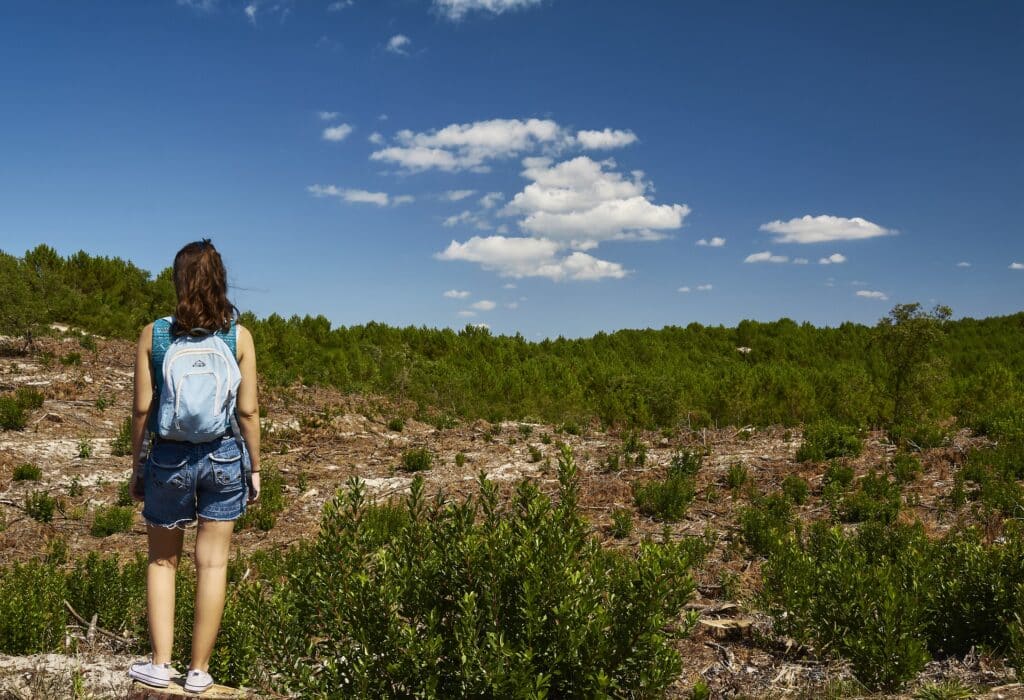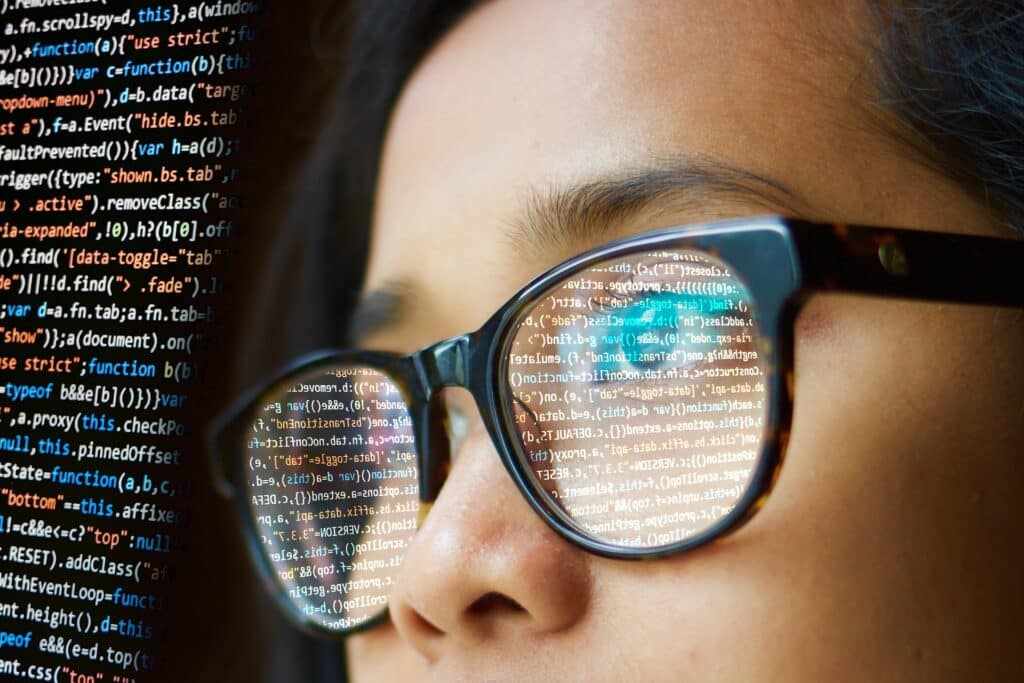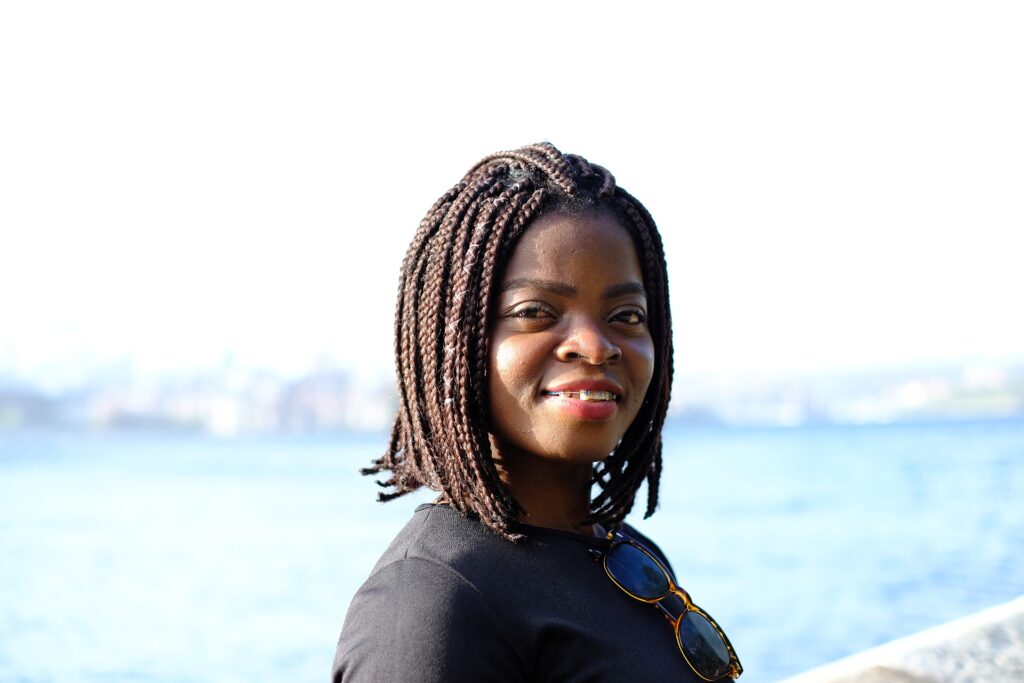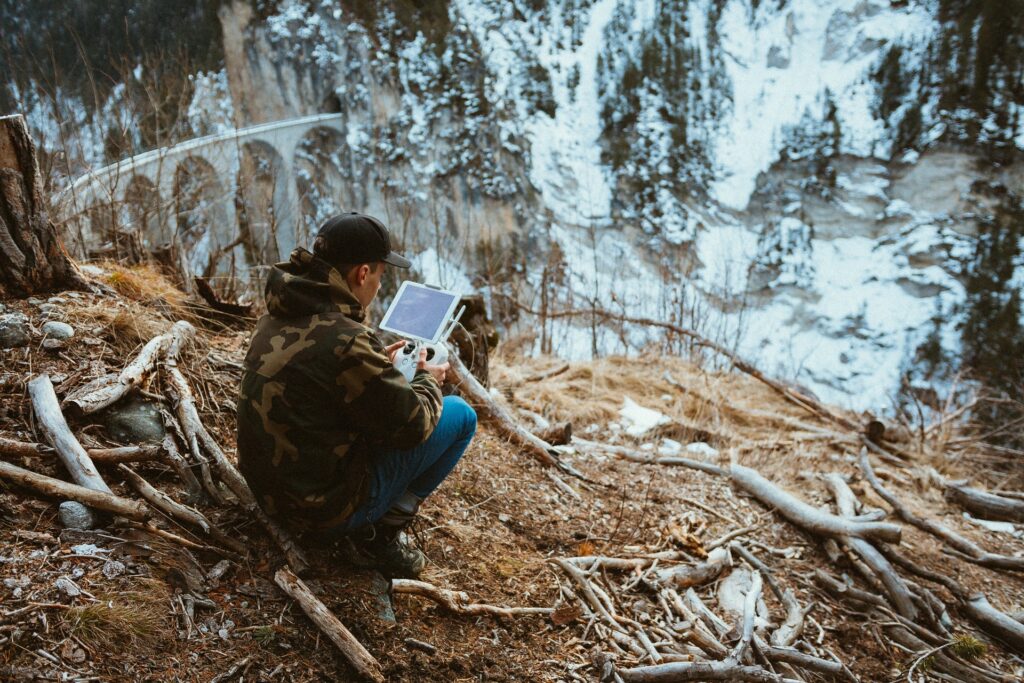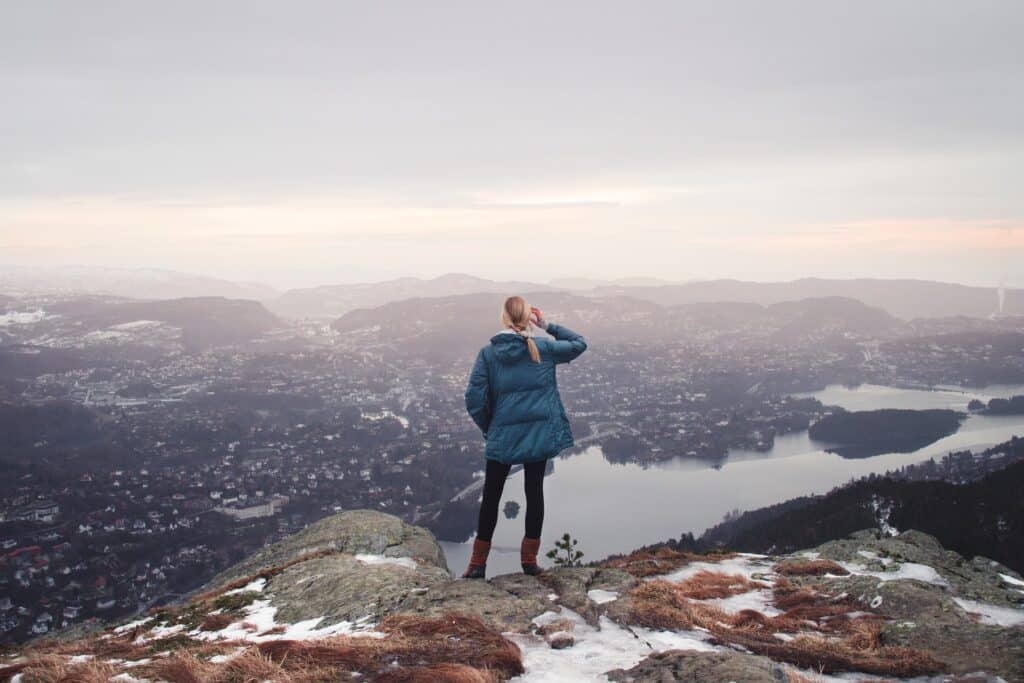No Boundaries: Women Explorers and Scientists who are Changing the World
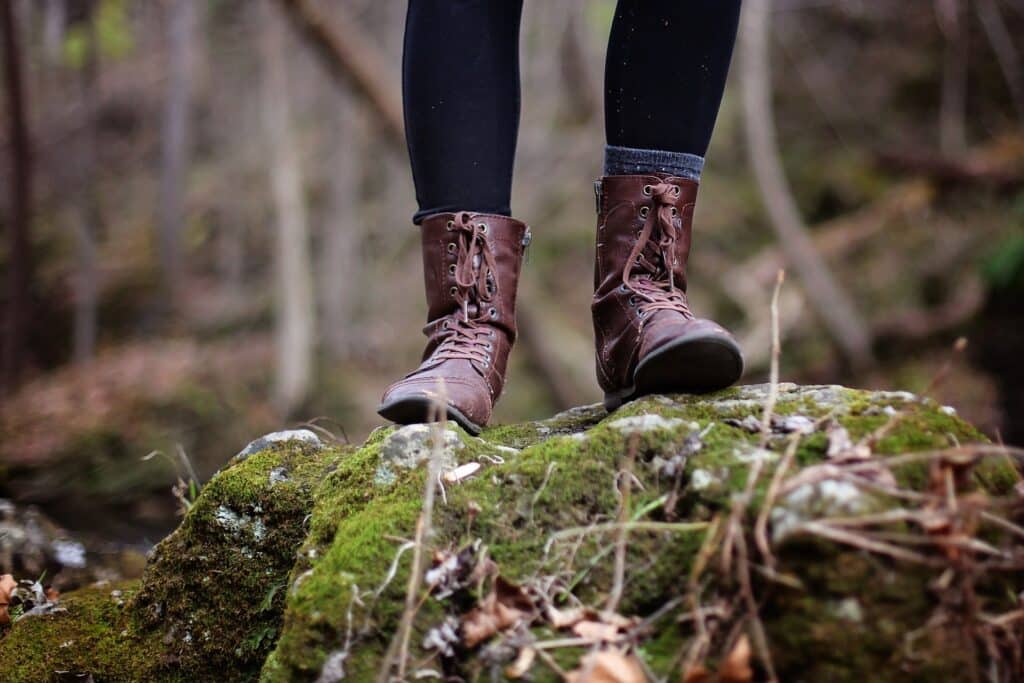
On this World Footprints episode, Ian and Tonya Fitzpatrick speak to National Geographic Explorer and conservation photographer, Gabby Salazar, to hear about some inspiring stories of women change-makers profiled in her new book, No Boundaries.
In No Boundaries, Gabby joined forces with fellow National Geographic Explorer, Clare Fieseler, to collect stories from 25 women explorers and scientists from around the world. Hear what it’s like to be a woman in science, and how the women overcame the challenges of discrimination, societal expectation and self-doubt.
“You can turn your camera to the beauty but you can’t ignore some of the problems when you become an observer of the world.“
Gabby Salazar
Some of the stories Gabby shares include the mountaineer who conquered the Seven Summits and a hiker who set a world record along the Appalachian Trail.
Enjoy this interview with National Geographic Explorer, Gabby Salazar, as she shares inspiring stories from the women in STEM and STEAM (including the “art” discipline) who are changing the world.
If you enjoyed this interview help your fellow travelers find us by leaving a 5-star rating and great review on Apple Podcasts or whatever platform you’re listening on. Please don’t forget to subscribe too. By the way, if you take the time to leave a nice review we’ll read it in the credits on our next podcast. Lastly, please follow us on INSTAGRAM.
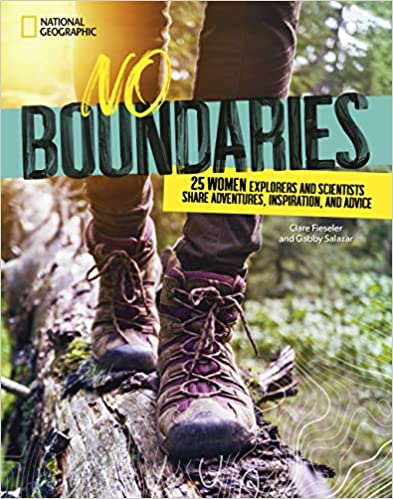
SHOW NOTES
In this episode, Ian and Tonya Fitzpatrick speak with Gabby Salazar. Gabby Salazar is a social scientist and a National Geographic Explorer. She has spent months living in tropical jungles and islands as an Associate Fellow of the International League of Conservation Photographers. Graduate of Imperial College London’s School of Forest, Fisheries, and Geomatics Science, Gabby is now a doctorate student studying environmental marketing at the University of Florida. She utilizes photography to encourage youngsters and interact with nature. Today, Gabby talks about the relevance of women in STEM subjects in today’s culture. Stay tuned!
In Quest for a Role Model
[02:17]
Claire Fiedler and Gabby Salazar met through the group as national geographic explorers. They both agreed that women are underrepresented in the media when becoming experts. They both want to discover ladies to look up to and copy as they grow older.
Filtering Subjects
[03:21]
Gabby has two criteria for selecting women. First, they must be able to share tales, and second, they can address a variety of topics relating to the obstacles and opportunities that women face in science and exploration. Women who could talk about hurdles they’ve had due to parenting or a lack of options when they were younger and how they overcame those obstacles while pursuing a career in STEM. Gabby also desired to create a yearbook of the various vocations, paths, and scientific areas in which young people can engage.
Stereotypes and Paragons
[06:06]
A recent review paper looked at 30 studies from 2003 to 2018 to see if stereotyping has changed over time. Describing scientists as middle-aged Caucasian men in lab coats hasn’t changed much, despite efforts to diversity images. As a result, Gabby wanted to portray realistic female role models that could represent a small portion of the variety but could help broaden visual depictions of women. Every youngster could look at it and say, “Maybe I could achieve that.”
[13:26]
There are a lot of great children’s books with female scientists in them, but there are probably less relatable women in the classroom nowadays. According to numerous studies, a lack of female role models is a significant reason women do not pursue STEM careers. In addition, the book makes an effort to highlight women of different ages and different early career routes. It isn’t just someone who has already made it and transformed the world, and it isn’t always evident how one becomes a Nobel Prize-winning scientist. Gabby wanted to show ladies at different phases of their careers so that you could see how they progressed.
[14:51]
Gabby was passionate about ensuring that children understood that they did not need a Ph.D. to pursue these careers. To contribute to our understanding of the world, you don’t have to follow a standard science path in university. Whether it’s rescuing the world or contributing to conservation, it’s a win-win situation. She believes that everyone should be aware that we may all have a role in STEM.
Starting Young
[16:28]
Gabby was 11 years old when her father handed her a digital camera with which she photographed birds in their backyard. She traveled and became interested in natural history and culture through photography. She realized that when you become an observer of the world, you can turn your camera to the beauty, but you can’t ignore some of the difficulties. This shift in thinking about photography, not just as an art form, which it is, but also as a mission-driven discipline that can contribute to conservation.
[18:20]
Gabby became interested in travel and discovery by reading, and she learned about it at public libraries. Her mother would frequently take us to the public library to check out her novels. Gabby wants people to go out and buy the book, but she also wants them to go out and request it from their local library since it is the best location for her to get it into the hands of youngsters from all walks of life.
Compositions and Campaigns
[20:42]
The way we frame images of nature and the environment is fascinating to Gabby. Studies show that negative images can draw our attention and make us pause and look. Other studies show that we need positive messaging to keep our attention, motivation, and energy levels. Gabby analyzes how timelines might be framed in communications and what those might look like in sustaining our energy because we’ll need a lot of it to address some of these global concerns.
[22:11]
If we don’t design and build infrastructure with wildlife corridors or connectivity in mind, we’ll end up with islands that isolate animals which breaks the chain of connectivity. Gabby is heartbroken to witness development in a region where destruction has occurred. These advances are short-term aims for her, and she ignores the long-term impacts on the ecosystem. She believes that more social scientists studying conservation are necessary because they can help us understand and appreciate the environmentalist and human perspectives. Find solutions that can integrate both the social and ecological systems to make sense not just tomorrow but hopefully 200 years from now.
Learn more about Gabby Salazar at:
LinkedIn: https://www.linkedin.com/in/gabby-salazar-473b2011
Facebook: https://www.facebook.com/gabbysalazarphotography/
Twitter: https://twitter.com/gabbyrsalazar
Instagram: https://www.instagram.com/gabbyrsalazar/?hl=en
Website: https://www.gabbysalazar.com/
Book Your Travel to ANY Destination
Search, compare and book hotels & rentals at the best prices that are sourced from a variety of platforms including Booking.com, Hotels.com, Expedia, Vrbo and more. Search for ANY destination by clicking in the upper left corner of this map. You can also use the filter to fine tune your search, find restaurants, attractions and more!
Guests:
